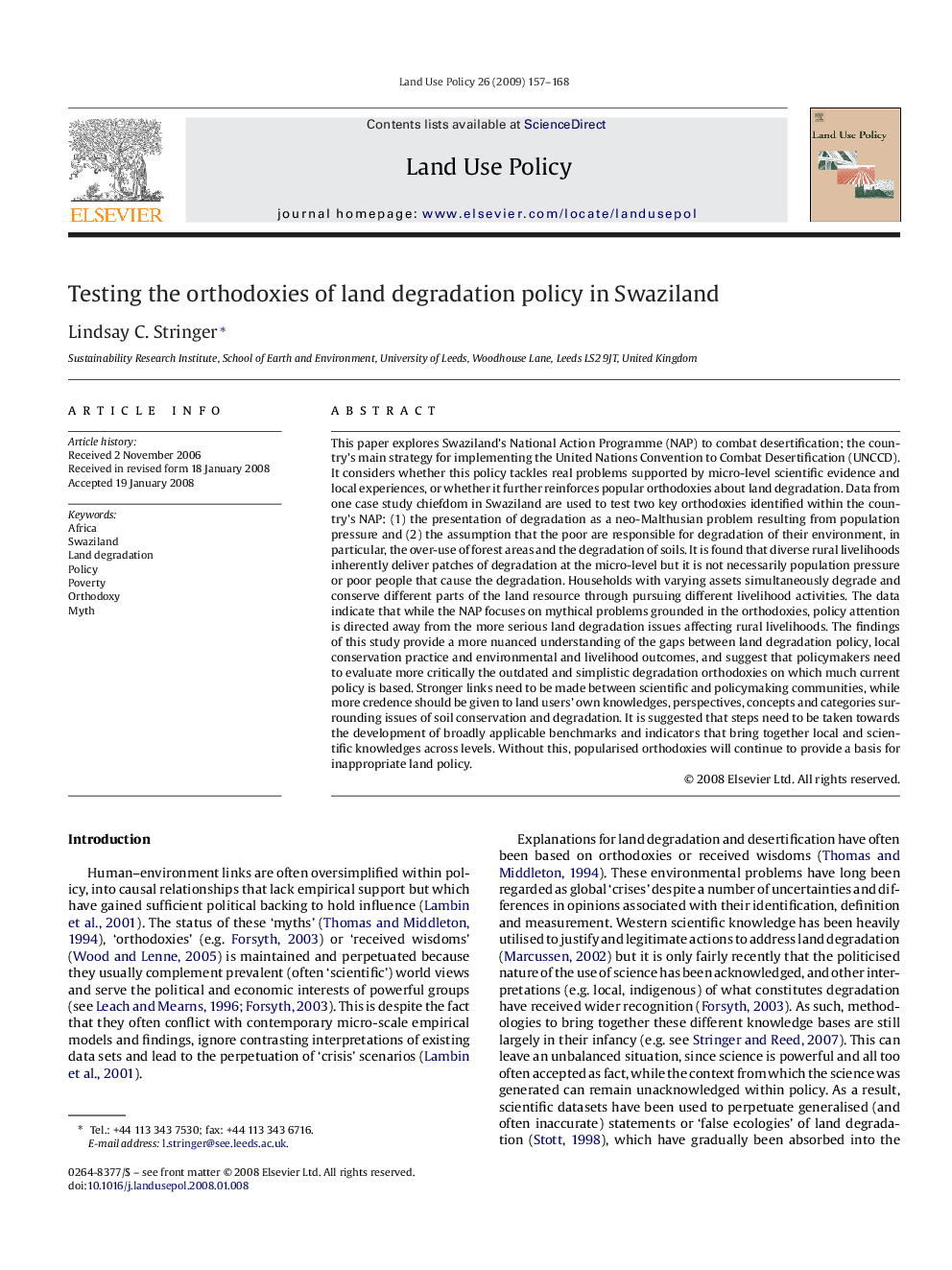| کد مقاله | کد نشریه | سال انتشار | مقاله انگلیسی | نسخه تمام متن |
|---|---|---|---|---|
| 93563 | 160131 | 2009 | 12 صفحه PDF | دانلود رایگان |

This paper explores Swaziland's National Action Programme (NAP) to combat desertification; the country's main strategy for implementing the United Nations Convention to Combat Desertification (UNCCD). It considers whether this policy tackles real problems supported by micro-level scientific evidence and local experiences, or whether it further reinforces popular orthodoxies about land degradation. Data from one case study chiefdom in Swaziland are used to test two key orthodoxies identified within the country's NAP: (1) the presentation of degradation as a neo-Malthusian problem resulting from population pressure and (2) the assumption that the poor are responsible for degradation of their environment, in particular, the over-use of forest areas and the degradation of soils. It is found that diverse rural livelihoods inherently deliver patches of degradation at the micro-level but it is not necessarily population pressure or poor people that cause the degradation. Households with varying assets simultaneously degrade and conserve different parts of the land resource through pursuing different livelihood activities. The data indicate that while the NAP focuses on mythical problems grounded in the orthodoxies, policy attention is directed away from the more serious land degradation issues affecting rural livelihoods. The findings of this study provide a more nuanced understanding of the gaps between land degradation policy, local conservation practice and environmental and livelihood outcomes, and suggest that policymakers need to evaluate more critically the outdated and simplistic degradation orthodoxies on which much current policy is based. Stronger links need to be made between scientific and policymaking communities, while more credence should be given to land users’ own knowledges, perspectives, concepts and categories surrounding issues of soil conservation and degradation. It is suggested that steps need to be taken towards the development of broadly applicable benchmarks and indicators that bring together local and scientific knowledges across levels. Without this, popularised orthodoxies will continue to provide a basis for inappropriate land policy.
Journal: Land Use Policy - Volume 26, Issue 2, April 2009, Pages 157–168